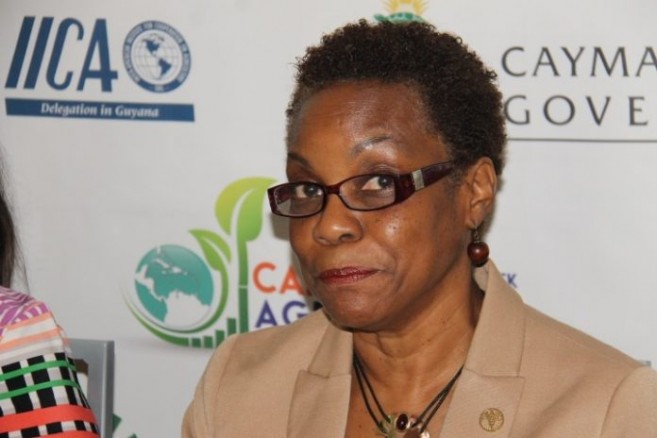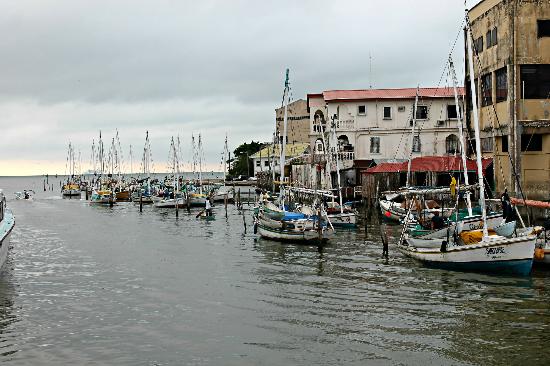September 11, 2018 (Bridgetown, Barbados) – The Food and Agriculture Organization of the United Nations (FAO) will launch the Developing Organizational Capacity for Ecosystem Stewardship and Livelihoods in Caribbean Small-Scale Fisheries (StewardFish) project this week. The project aims to strengthen the capacity of fisherfolk and their organizations to better participate in the governance and management of the shared living marine resources in the Caribbean and North Brazil Shelf Large Marine Ecosystems (CLME+ region) to enhance their livelihood opportunities. Targeted countries are Antigua and Barbuda, Barbados, Belize, Guyana, Jamaica, St. Lucia, and St. Vincent and the Grenadines.
The StewardFish project will officially launch on Thursday, September 13 at 8:30am, during an inception workshop hosted by FAO at United Nations House in Barbados. Dr. Lystra Fletcher-Paul, FAO Sub-regional Coordinator for the Caribbean, will deliver opening remarks. Media are invited to attend the launch.

The StewardFish Project launch and inception workshop will bring together key partners and stakeholders who will be involved in the delivery of the project to ensure that there is a common understanding of objectives, components, outcomes, inputs, outputs and planned activities as well as the roles and responsibilities of all partners. The event will give participants an opportunity to develop participatory mechanisms for effective project implementation, monitoring and evaluation.
Workshop participants will include representatives from the fisheries authorities, who will serve as national executing partners for the project, as well as lead fisherfolk organizations in the seven project countries. Also in attendance will be representatives from regional executing partner institutions such as the Caribbean Regional Fisheries Mechanism (CFRM); Caribbean Network of Fisherfolk Organizations (CNFO); Caribbean Natural Resources Institute (CANARI); University of the West Indies Centre for Resource Management and Environmental Studies (UWI CERMES); FAO; and Western Central Atlantic Fishery Commission (WECAFC). Cooperatives, small businesses, coastal zone agencies and gender-related organizations are also expected to participate.
“The StewardFish Project is designed to empower fisherfolk so that they can be more resilient to the socio-economic and environmental challenges that they face. The project will focus on building their capacity in fisheries value chains so that they can improve their participation in resource management, decision-making processes and the sustainability of their livelihoods, with strengthened institutional support at all levels,” said Ms. Yvette DieiOuadi, Fishery Officer for FAO’s Subregional Office for the Caribbean.
Background
The seven project countries (Antigua and Barbuda, Barbados, Belize, Guyana, Jamaica, St. Lucia, St. Vincent and the Grenadines) share similar characteristics that can affect their growth and viability. These include relatively small but expanding populations; limited natural resource endowments that are fragile; vulnerability to natural disasters; and high dependence on international trade and external support for sustainable fisheries development and management.
The small-scale fisheries of these countries also face transboundary environmental threats such as unsustainable fisheries; habitat degradation and ecosystem community modification; and pollution. Other difficulties associated with the sustainable development of fisheries in project countries include insufficient financial resources and human capacity in state institutions; and inadequate organizational, human, financial and technical capacity among non-state actors such as fisherfolk along the value chain to engage meaningfully in management.
The StewardFish Project will seek to build the capacity of the fisherfolk organizations in the seven countries under the Strategic Action Programme for the Sustainable Management of the Shared Living Marine Resources of the Caribbean and North Brazil Shelf Large Marine Ecosystems (CLME+ SAP) so that they can better engage in the local, national and regional policymaking processes. The CLME+ SAP aims to address these challenges, using ecosystem-based approaches.
The project is part of the larger implementation of the CLME+ SAP, a 10-year plan which was adopted in 2013 by countries located within the CLME+ region, with a long-term vision of “a healthy marine environment in the CLME+ that provides benefits and livelihoods for the well-being of the people of the region”.

